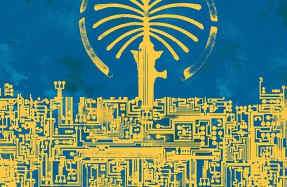Memory war

ON A BREEZY AFTERNOON LAST SPRING, the Russian billionaire Mikhail Fridman took me on a tour of a public park near the center of Kyiv, the capital of Ukraine, along with a team of aides, architects, historians and artists. They had spent several years building a complex of memorials on the grounds, honoring the victims of a massacre that took place there during World War II. But the project had become so controversial in Ukraine, especially in the context of the country’s ongoing war with Russia, that the entourage had brought a team of bodyguards, who surrounded Fridman in a loose formation, tensing every time a stranger came too close.
Fridman was used to this. For nearly a quarter-century, he has survived at the top of Moscow’s billionaire class despite the regular purges and shake-ups that have sent several of his peers to prison or exile. His fortune comes from two of the most cutthroat sectors of the Russian economy: oil and banking. But in person, Fridman does not come off as a typical robber baron. At 57, he has a boyish smile and stooped shoulders that make him seem shy, as though instinctively shrinking from attention. He says he prefers to avoid the meetings that Russian President Vladimir Putin convenes with the oligarchs every few months. “I always feel awkward” at such conclaves, Fridman told me. “I never know what to do with myself.”
In the park, he seemed at ease among the couples with strollers and the teenagers riding skateboards. He led our tour to a path that ran along the edge of a steep slope, overlooking a stand of leafless birches. “Here it is,” Fridman said. “This is where they would shoot them and throw them down.”
In September 1941, soon after the Germans occupied Kyiv, tens of thousands of the city’s
You’re reading a preview, subscribe to read more.
Start your free 30 days





